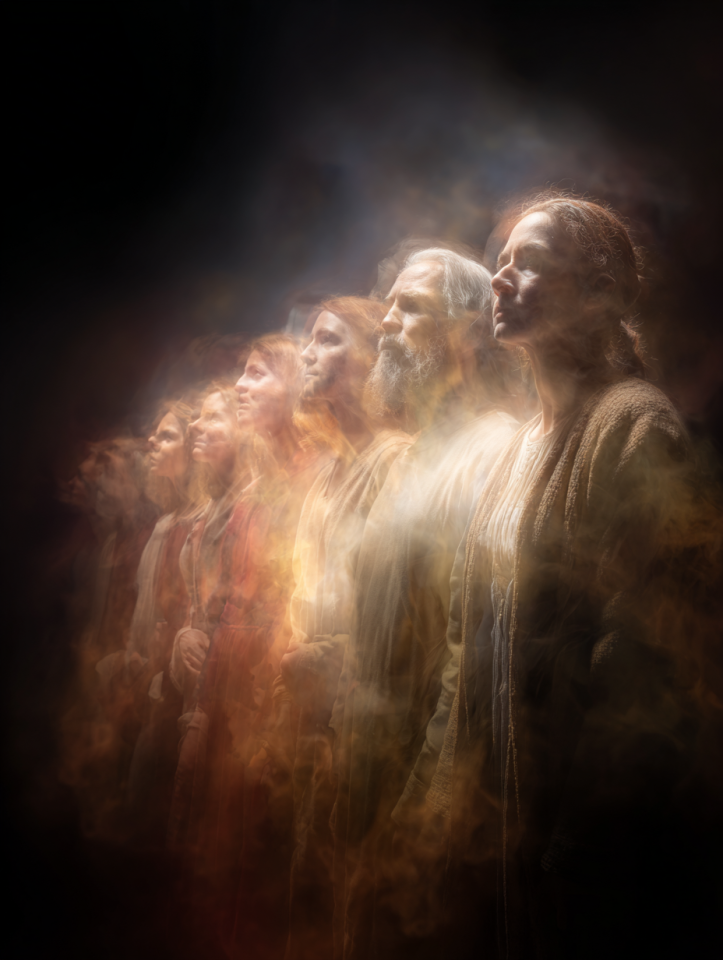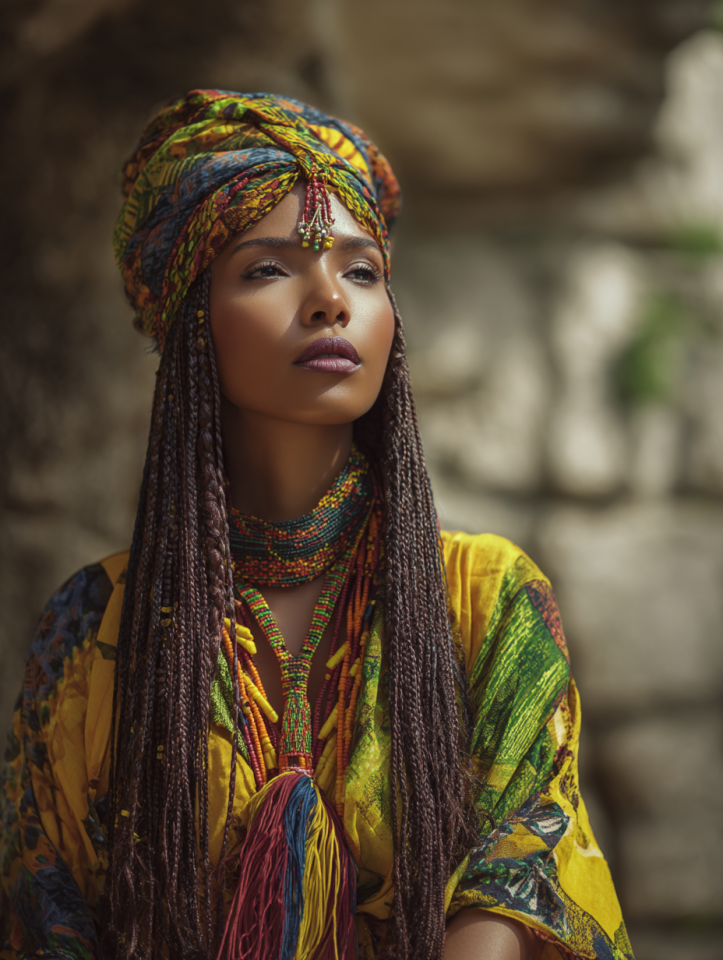Jawari Alhawa (ja-WAR-ee al-HA-wa)
Al-Jink
The Jawari Alhawa drift across the landscapes of Tír na nÓg like whispers carried on a warm desert breeze. They are beings shaped not by birth, but by desire itself—dreamed into existence by the longings of countless souls. Each one seems carved from poetry: fluid in motion, melodious in voice, and timeless in presence. Their appearances reflect the ideals of allure and charm, yet never settle into sameness. One might pass them on a sunlit road or hear their laughter echo through a garden and feel, inexplicably, that they have always known them.
Though they may resemble youthful men in form, the Jawari Alhawa defy mortal binaries. Their energy is playful yet profound, shifting between masculine and androgynous with the same ease they cross between the waking world and dreamlike reverie. They carry the scent of saffron and myrrh, and where they walk, colors seem more vivid, music more resonant, and the air more charged with life. To meet one is to feel truly seen—as though your soul has been recognized by a mirror you never knew existed.
Nomadic by nature, they rarely linger in one place for long. Some stay just long enough to stir the hearts of a lonely village, inspire a painter, or comfort a grieving child. Others vanish as quickly as a song ends, leaving behind only the warmth of memory. Their presence is neither invasive nor overbearing—they are invited in by need, not force. Their companionship is one of healing wrapped in joy, and they depart when their resonance with a place has served its purpose.
Despite their easy charm, the Jawari Alhawa carry an ancient dignity. They are not bound by tradition or expectation, and yet their existence honors countless traditions of art, dance, storytelling, and intimacy. They are keepers of tales that no book remembers and singers of songs that stir emotions without words. Each is a living archive of emotional truth, bearing the forgotten histories of affection, beauty, longing, and grace.
They have no homeland, but they belong everywhere. In Tír na nÓg, they are welcomed as sacred wanderers—a reminder that pleasure, connection, and compassion are forces as vital as reason or law. Among the Aetherkin, they are celebrated for the joy they bring and the silences they soothe. Their sacred gift is not to change the world, but to reveal its tenderest places.
To encounter a Jawari Alhawa is to understand that pleasure is not indulgence, but communion. They do not demand attention; they simply radiate presence. And in that presence, many have found the courage to love, to weep, to speak truths too long buried. They are the embodiment of joy with depth, of elegance without vanity, and of love without possession.
Aetherkin
Basic Information
Biological Traits
They are immune to disease and do not require sleep or food. Their essence is sustained by the emotional resonance of those they interact with—particularly joy, affection, and awe. When separated from meaningful interaction, they may fade from physical visibility but never cease to exist.
Behaviour
Naturally empathetic and intuitive, the Jawari Alhawa exhibit a deep sensitivity to the needs of others. They are unassuming, joyful, and emotionally intelligent, often able to diffuse tension or uplift others with minimal effort. They are drawn to beauty and shared experiences, thriving in environments of connection and expression.
Additional Information
Perception and Sensory Capabilities
They possess heightened perception tuned especially to emotional states. They can hear heartbeat variations, see subtle shifts in aura, and intuitively interpret silence or hesitation. Though they do not claim telepathy, their ability to understand the unspoken borders on the supernatural.
Civilization and Culture
Common Myths and Legends
Parallels to the Jawari Alhawa exist in the al-jink of pre-Islamic Middle Eastern tales, who accompanied jinn as sacred companions, entertainers, and sensual spirits. They echo the mythic role of divine consorts or muses—beings of ambiguous gender and eternal charm. Some stories claim they were born from the first longing sighs of the moon, while others say they were carved from wind by lonely gods to ease the ache of separation.
| APPEARANCE/PHENOTYPE |
|---|
| Jawari Alhawa appear humanoid in structure, with physiology consistent with male-presenting mortals but composed of ethereal tissue and luminous blood. They do not age, scar, or bruise conventionally, their forms sustained by desire and emotion given shape. Their physiques mirror idealized vitality—lean, athletic, and perfectly proportioned. Movements are fluid and deliberate, marked more by grace than force. Musculature is defined without bulk, conveying effortless elegance. Facial features are strikingly symmetrical, often shifting subtly to match the preferences of those who behold them. Soft markings resembling glowing kohl or ceremonial paint may appear across the face, changing with mood. Skin tones range from golden to sun-bronzed, with a subtle radiance in dim light. Eyes shift between obsidian and amber, reflecting emotional resonance, and faint patterns sometimes shimmer across the skin like windblown sand. |
height |
length |
weight |
|---|---|---|
1.75 m depends on form |
N/A |
70 kg depends on form |
Genetic Ancestor(s)
Scientific Name
Neacha; Nádúrtha; Orientalis jawari alhawa
Geographic Distribution
Related Organizations

















